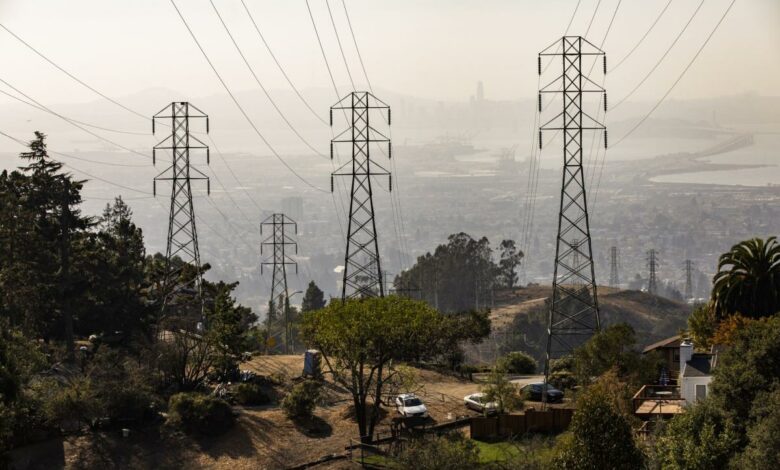California Adopts One of Nation’s Highest Fixed-Utility Fees

(Bloomberg) — California regulators voted to impose one of the country’s highest monthly fixed-utility fees in a sweeping bid to change how customers in the Golden State pay for electricity.
Most Read from Bloomberg
Utilities owned by PG&E Corp., Edison International and Sempra will be able to charge many customers about $24 a month starting at the end of the year to cover their infrastructure costs, according to a decision Thursday by the California Public Utilities Commission.
In exchange for the higher monthly fee, which had been capped at $10, customers will also pay 5 cents to 7 cents less for each kilowatt-hour used. The fixed monthly charge will be smaller for low-income customers.
The change comes as California grapples with what consumer advocates have called an affordability crisis for the state’s utility customers, who now on average face the second-highest power rates in the country.
Rates have doubled for many customers who are paying for utilities to spend billions of dollars to update their aging grids and work on reducing the risk of their power lines sparking more catastrophic wildfires.
The new billing structure was allowed by a law signed by California Governor Gavin Newsom two years ago that required fixed electric fees be based on income.
State regulators say the new rates will make it more affordable for customers to electrify their homes and use plug-in cars. Critics of the proposal say that it will raise bills for those who live in small apartments and don’t use much power as well as for rooftop solar customers who can offset their utility bills by generating their own electricity, since they will still be obligated to pay the fixed monthly fee even if they receive credits for their excess power.
“The CPUC expects the reallocation of costs to encourage electrification, but we think it could further undermine rooftop solar in the state,” ClearView Energy Partners wrote in a research note after the decision.
Last year, California regulators sharply reduced incentives for new rooftop solar customers, saying it would help lower bills for those who can’t or don’t have solar panels and are paying for those who do. That has led to steep decline in residential solar installations in the biggest US market.
Utilities have supported the idea of raising fixed monthly fees as a way to more evenly distribute its infrastructure costs among customers. The fixed charges would be near the top of those imposed by investor-owned utilities, according to an analysis by Ahmad Faruqui, a utility rate expert.
(Updates with analyst comment in eighth paragraph)
Most Read from Bloomberg Businessweek
©2024 Bloomberg L.P.
Source link




